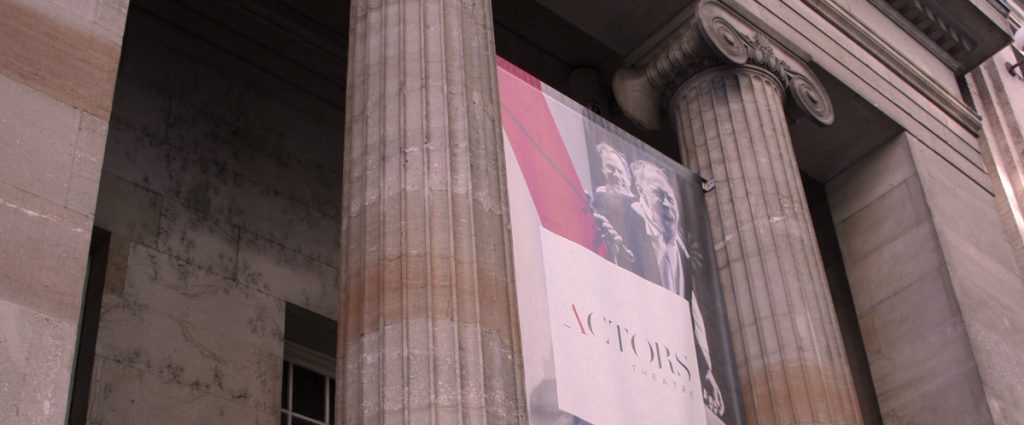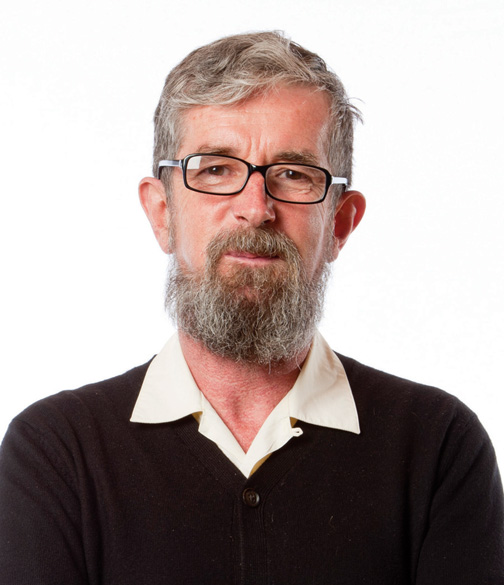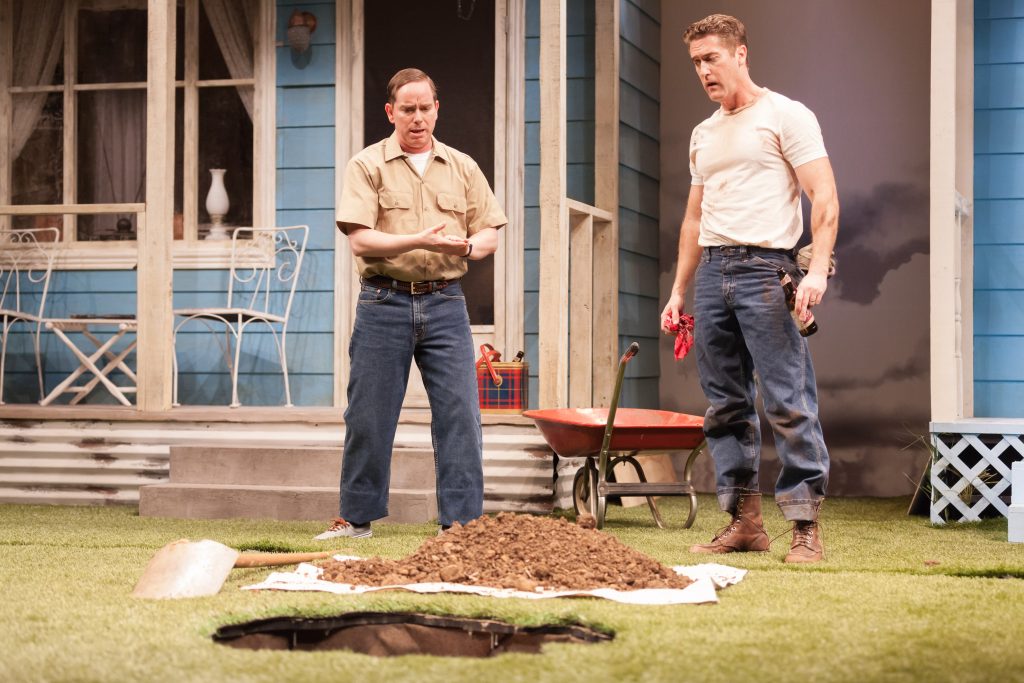
The façade of the Actors Theatre in Louisville, Ky.
For 41 years, the for-profit health care provider Humana and its charitable arm, the Humana Foundation, have been underwriting a pioneering new-play festival at Actors Theatre of Louisville in Kentucky.
Through submissions and commissions, the non-profit stage company selects and fully produces a half dozen or so new scripts annually, many of which then wend their way to New York and throughout the regional stage network of the country. (I was at the festival from March 31 to April 2; the festival closed April 9.)
Particularly in its early years, when the Humana Festival of New American Plays was the only such large-scale incubator program, it had a major impact on the theater world. Plays that premiered at Humana went on to win Pulitzer Prizes for Drama (The Gin Game, Crimes of the Heart, Dinner with Friends), to Broadway acclaim (’night, Mother, Agnes of God) and received numerous productions around the nation (Keely and Du, Private Eyes, Danny and the Deep Blue Sea).
ATL’s artistic director Les Waters, long a champion of new work, inherited the Humana Festival when he took over the top spot at the theater in January 2012. Fortunately for him, his literary staff does the first read of the 500-600 scripts that come in through agent referrals.

“We don’t have an open-door policy,” concedes Waters. “If we opened it to unsolicited manuscripts, we’d be at 2 to 3,000 for the festival each year. That would be just impossible, instead of almost manageable.”
With the dross eliminated, Waters read roughly 10 percent of the submissions, along with his artistic team, to reach this year’s six scripts to be produced in a month-long repertory of premieres.
Although the Humana Festival was never intended as an indicator of trends in the American theater — merely a showcase of the best scripts available — that is what most of the theater writers who make a pilgrimage to Louisville are there to discover.
For starters, the quantity of submissions does not suggest a profusion of quality. As Waters notes, the final decisions are rarely a struggle. Finding six scripts he can proudly produce is hard enough, but he would be hard-pressed to select a second six first-rate plays from the pile. “No, we couldn’t and I don’t think that’s been the case in any of the years that I’ve been here,” he says.
Conspicuously absent from this year’s festival were plays that reflected the political turmoil in the country after the divisive presidential campaign. Waters has no doubt that they are being written now, but the selection lead time meant that decisions were already made before the Trump hit the fan.
“These show were all chosen pre-election, so we’ll see what people are writing next year,” says Waters. “I think we’ll get to them soon enough.”
He describes this year’s festival plays, whose subjects range from air guitar competitions, wedding snafus, parenting challenges and the Cuban Missile Crisis, as “all political in their own way.” Waters chose to direct a drama — the festival’s only drama — Jorge Ignacio Cortinas’s Recent Alien Abductions. A cross between a domestic violence tale and TV’s The X-Files, it is also the most overtly political work in the festival. “The others are all political without directly looking at the political situation that we find ourselves in at the moment,” Waters explains.

While it is hardly a profound observation, it is worth noting that five of the six plays in the Humana Festival have no intermission. The exception, Basil Kreimendahl’s We’re Gonna Be Okay, is in two acts largely because of the drastic scenic change from a suburban exterior to a subterranean fallout shelter.
According to Waters, the disappearance of intermissions has been happening for several years now. “I think it’s a function of what the playwrights want to write,” he says, with many submitted scripts in the 90-100 minute range. Giving the writers the benefit of the doubt, Waters offers the opinion that they are not necessarily thinking small in what they are tackling, but “maybe with more concision.”
Making the six chosen plays look even better than they are on paper is the design excellence and first-rate acting pool that the Humana Festival attracts. And for two weekends, Actors Theatre traditionally shows off the skill of its tech staff, presenting all six plays over the course of 48 hours.
For those two weekends, as scouts from theater companies around the country as well as theater reviewers and journalists descend on Louisville, which temporarily becomes the nation’s theater capital. And the health of the American theater seems robust.